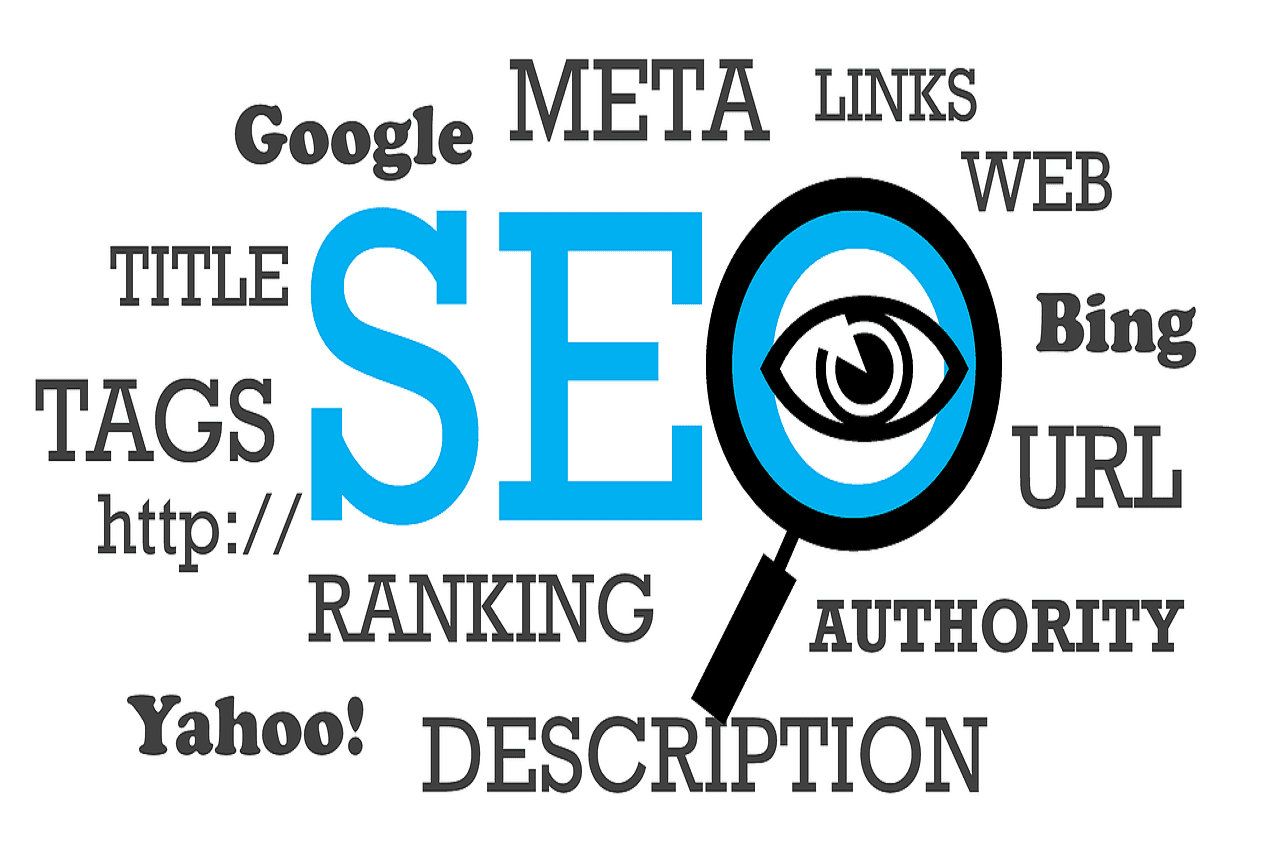Boost Your Growth with Local SEO for Small Businesses

As a small business owner, you’re always looking for ways to grow and expand your reach. One powerful tool that can help you achieve this is local SEO. By optimizing your online presence for local search engine rankings, you can attract more customers to your small business and increase your revenue.
But what exactly is local SEO, and how can you implement it for your small business? In this article, we’ll explore the basics of local SEO and provide you with actionable strategies you can use to improve your online visibility and drive growth.
Key Takeaways:
- Local SEO can amplify your visibility in search engine results and attract more customers to your small business
- Optimizing your website’s on-page factors, including keyword research, content optimization, meta tags, and website structure, is essential for local SEO success
- Local SEO services can save you time and resources while providing the expertise needed to maximize your online visibility and reach your target audience effectively
- Improving your local search ranking requires strategies such as claiming and optimizing your Google My Business listing, building high-quality backlinks, and implementing local schema markup
- Cost-effective local SEO strategies prioritize your efforts, leverage free tools and resources, and make the most out of your marketing budget to drive results and ROI
Understanding Local SEO for Small Businesses
As a small business owner, you’re probably already familiar with the importance of Search Engine Optimization (SEO) in today’s online landscape. However, when it comes to optimizing your website for local search rankings, things can get a little more complicated. That’s where local SEO for small businesses comes in.
Search Engine Optimization for Small Local Businesses is all about optimizing your website for specific local searches in your area, such as “coffee shops near me” or “plumbers in [your city].” By doing so, you can attract more relevant traffic to your site and increase your chances of converting those visitors into paying customers.
So, what sets local SEO apart from traditional SEO?
The Difference Between Local SEO and Traditional SEO
Traditional SEO focuses on optimizing your website for specific keywords and phrases related to your business. The goal is to increase your overall search engine rankings and attract as much traffic as possible to your site, regardless of where they’re located.
Local SEO, on the other hand, is focused on optimizing your website for specific local searches in your area. By doing so, you can increase your visibility in search results when people in your area search for products or services like yours.
So, why is local SEO important for small businesses?
The Benefits of Local SEO for Small Businesses
Effective SEO Strategies for Small Businesses can have a significant impact on your bottom line. By optimizing your website for local search rankings, you can:
- Increase your online visibility in your target market
- Attract more relevant and qualified leads to your website
- Build trust and credibility with local customers
- Drive foot traffic to your physical location
- Increase your chances of converting visitors into paying customers
Now that you understand why local SEO matters for your small business, let’s dive into the key elements that contribute to a successful local SEO strategy.
The Benefits of Local SEO for Small Businesses
If you’re looking for effective SEO strategies for small businesses, local SEO is the way to go. By optimizing your website for local search terms, you can attract more customers from your target audience and improve your online visibility.
The benefits of local SEO for small businesses are numerous. Here are some of the most significant advantages:
- Increased brand visibility: By appearing at the top of search engine results for relevant local search terms, you can build greater brand awareness and recognition among your target audience.
- Greater customer trust: Being listed in local search results and directories can make your business appear more trustworthy and credible to potential customers.
- Higher website traffic: When you optimize your website for local search, you can attract more qualified traffic from people in your local area who are looking for your products or services.
- More conversions: By attracting targeted traffic to your website, you increase the likelihood of converting visitors into paying customers. This can help boost your revenue and bottom line.
Overall, local SEO is an effective way to boost your small business’s growth and reach more customers in your local area. By implementing the right local SEO strategies, you can improve your search rankings, generate more website traffic, and increase your revenue.

Key Elements for Optimizing Small Business Websites for Local SEO
When it comes to optimizing your small business website for local SEO, there are several key elements that you need to focus on to improve your online visibility and increase your search rankings. By following these essential tips, you can ensure that your website is optimized to attract local customers and drive traffic to your business.
Keyword Research
One of the most important aspects of optimizing your website for local SEO is conducting thorough keyword research to understand the search terms and phrases that your target audience is using to find businesses like yours. By using tools like Google Keyword Planner, you can identify relevant keywords and incorporate them into your website content and meta tags.
Content Optimization
Creating high-quality, relevant content is key to optimizing your website for local search. Your website should include informative, engaging content that speaks directly to your target audience and incorporates your target keywords. You should also ensure that your content is structured in a way that’s easy to read and navigate, with clear headings and subheadings, bullet points, and other formatting elements that make it visually appealing and user-friendly.
Meta Tags
Meta tags are important elements that provide information about your website to search engines. By including relevant keywords in your meta titles and descriptions, you can help search engines understand the purpose and content of your website, which can improve your search rankings.
Website Structure
The structure of your website is also critical to local SEO success. Your website should be well-organized and easy to navigate, with clear menus and a logical hierarchy of pages. You should also ensure that your website is mobile-friendly, as more and more users are accessing websites on their mobile devices.
Local Business Listings
One of the most effective ways to improve your local SEO is by creating and optimizing your business listings in online directories like Google My Business, Yelp, and Yellow Pages. By including accurate and up-to-date information about your business, such as your address, phone number, and business hours, you can make it easier for potential customers to find and contact you.
Schema Markup
Schema markup is a type of code that you can add to your website to provide more detailed information about your business to search engines. By including schema markup for your business name, address, and phone number, you can help search engines understand your business information and improve your local search rankings.
By focusing on these key elements, you can optimize your small business website for local SEO and attract more local customers to your business. Make sure to invest the time and effort necessary to implement these strategies effectively, and you’ll be well on your way to local SEO success.
Local SEO Techniques for Small Businesses
When it comes to optimizing your small business for local search, there are numerous techniques and strategies you can employ to improve your online visibility and attract more customers. Here are some effective SEO techniques for small businesses:
1. Target Local Keywords
The first step in optimizing your small business for local search is to target local keywords. This means adding location-specific keywords to your website and content to ensure that your business appears in search results for users in your area. For instance, if you run a bakery in Chicago, you could target keywords like “Chicago Bakery” or “Bakery near me.”
2. Claim and Optimize your Google My Business Listing
Google My Business is a free tool that allows you to manage your online presence across Google, including search and maps. Claiming and optimizing your Google My Business Listing can significantly improve your local SEO by making it easier for potential customers to find and contact you.
| Optimization Tips for Google My Business Listing | Description |
|---|---|
| Provide accurate and complete information | Make sure your business name, address, phone number, and website URL are accurate and up to date. Also, add a description, business hours, photos, and other relevant information to your listing. |
| Encourage customer reviews | Positive customer reviews can boost your local SEO and attract more customers. Encourage your happy customers to leave reviews on your Google My Business page. |
| Use Relevant Categories | Select the most relevant categories for your business to help Google understand what your business is all about. |
3. Build High-Quality Backlinks
Backlinks are links from other websites to your site and are an important factor in ranking your website higher in search results. Building high-quality backlinks from reputable sources can help improve your small business’s online visibility and increase your search rankings.
4. Optimize for Voice Search
Voice search is becoming increasingly popular, and optimizing your small business website for voice search can help you attract more customers who use virtual assistants like Google Assistant, Siri, and Alexa. To optimize for voice search, use natural language in your content, include long-tail keywords, and provide clear and concise answers to frequently asked questions.
5. Leverage Online Directories
Online directories like Yelp, Yellow Pages, and Angie’s List can help improve your small business’s online visibility and attract more customers. Listing your business in online directories can also improve your local search rankings and provide valuable backlinks to your website.
- Make sure your business information is accurate and up to date.
- Encourage customer reviews to improve your online reputation.
- Choose directories that are relevant to your business and target audience.
By implementing these SEO techniques for small businesses, you can improve your online visibility, attract more customers, and ultimately grow your business.
Leveraging Local SEO Services for Small Businesses
Implementing an effective local SEO strategy can be a complex and time-consuming effort. As a small business owner, you might not have the necessary expertise or resources to handle your SEO campaigns in-house. This is where outsourcing your local SEO efforts to a professional agency can make a significant difference.
Professional local SEO services are designed to help small businesses improve their online visibility and attract more local customers. By leveraging the expertise of SEO professionals, you can save time and resources while focusing on other critical aspects of your business.
Local SEO services typically include a wide range of strategies and techniques, including:
| Service | Description |
|---|---|
| Keyword research | Identifying the most relevant and profitable keywords for your business and optimizing your website content for them. |
| Local directory submissions | Submitting your business information to online directories such as Google My Business, Yelp, and Yellow Pages to increase your online presence. |
| Backlink building | Creating high-quality backlinks to your website from authoritative sources to improve your search rankings. |
| On-page optimization | Optimizing various on-page factors such as meta tags, headers, and content to improve your website’s relevance and visibility. |
| Analytics and reporting | Tracking your SEO performance and providing regular reports on your progress. |
Partnering with a professional local SEO agency can provide you with significant benefits, including:
- Access to specialized expertise and resources that you might not have in-house
- Savings on time and resources, allowing you to focus on your core business activities
- Customized strategies and tailored recommendations based on your specific business needs and goals
- Increased online visibility and improved search rankings, leading to more website traffic, leads, and conversions
When choosing a local SEO agency, make sure to do your research and select a reputable and experienced provider. Look for agencies that have a proven track record of success, strong client reviews and testimonials, and a comprehensive range of services that can meet your business needs.
Leveraging local SEO services for small businesses can be an effective way to enhance your online presence and attract more local customers. By working with professional SEO experts, you can take your business to the next level and achieve sustainable growth.
Improving Local Search Ranking for Small Businesses
If you’re a small business owner, the success of your business depends on how well you can reach your target audience. In today’s digital age, this means having a strong online presence that can attract potential customers to your website and ultimately convert them into paying customers. But in order to do this, you need to have a good local search ranking.
Improving your local search ranking involves a range of different strategies, including:
- Claiming and verifying your Google My Business listing
- Optimizing your website for local keywords
- Building high-quality backlinks
- Implementing local schema markup
Table: A Comparison of Local Search Ranking Factors
| Ranking Factor | Google My Business | Website | Local Business Directories | Citations |
|---|---|---|---|---|
| Importance | 25.12% | 16.53% | 13.31% | 10.87% |
| Relevance | 19.01% | 14.44% | 16.06% | 13.78% |
| Distance | 15.53% | N/A | N/A | N/A |
| Prominence | 13.06% | 13.03% | 10.87% | 9.74% |
As you can see, claiming and optimizing your Google My Business listing is the most important factor for improving your local search ranking, followed by optimizing your website for local keywords and building high-quality backlinks.
Another important factor to consider is your business’s online reputation. This includes customer reviews on sites like Yelp and Google, as well as citations or mentions of your business on reputable websites. Having a positive online reputation can significantly impact your local search ranking and attract more customers to your business.
By implementing these strategies and regularly monitoring your local search ranking, you can improve your online visibility, attract more customers, and ultimately grow your small business.
Affordable Local SEO for Small Businesses
As a small business owner, you understand the importance of investing in effective marketing strategies to grow your business. However, with limited resources and budget constraints, it can be challenging to prioritize and execute your marketing plan.
Fortunately, local SEO can be a cost-effective solution for small businesses looking to improve their online visibility and attract more customers. By implementing the right local SEO strategies, you can reach your target audience effectively and increase your search rankings, all without breaking the bank.
Focus on Local Keyword Targeting
One of the most crucial aspects of local SEO is keyword targeting. By researching and targeting local keywords relevant to your business, you can improve your search engine rankings and attract more local customers.
To get started, use tools like Google’s Keyword Planner to identify the keywords your target audience is searching for. Then, optimize your website’s content, meta tags, and other on-page factors with these keywords to improve your local search rankings.
Optimize Your Google My Business Listing
A robust and optimized Google My Business listing can significantly impact your local search rankings and improve your online visibility. Ensure that your GMB profile includes accurate and up-to-date information, including your business name, address, phone number, and website.
You should also add high-quality images, respond to customer reviews, and include relevant categories and keywords to optimize your GMB listing further.
Leverage Online Directories
Online directories like Yelp, Yellow Pages, and TripAdvisor can also help improve your local search rankings and attract more customers to your small business. Ensure that your business is listed accurately and consistently across these directories, including your NAP (name, address, phone number) information and website URL.
You can also leverage industry-specific directories to improve your visibility within your niche market. For example, if you run a restaurant, consider listing your business on local restaurant directories.
Partner with Other Local Businesses
Collaborating with other local businesses can also improve your local search rankings and attract more customers to your business. Consider forming partnerships with complementary businesses in your community, like hosting joint events or cross-promoting each other on social media.
Local SEO Tips for Small Business Owners
As a small business owner, optimizing your website for local search rankings is crucial to attract more customers to your business and stay ahead of the competition. To help you get started, here are some practical local SEO tips tailored for small business owners:
1. Leverage customer reviews
Customer reviews are a powerful tool for boosting your local search rankings and building trust with potential customers. Encourage your customers to leave reviews on platforms like Google My Business, Yelp, and Facebook. Don’t forget to respond to reviews to show you value customer feedback.
2. Optimize for voice search
Voice search is becoming increasingly popular among consumers, especially when looking for local businesses. Make sure your website is optimized for voice search by using natural language and including relevant long-tail keywords.
3. Harness the power of online directories
List your business on popular local online directories like Google My Business, Yelp, and Yellow Pages. Make sure your information is accurate and consistent across all directories to improve your local search rankings and attract more customers.
4. Build local partnerships
Partner with other local businesses or organizations to increase your online visibility and reach a wider audience. Consider sponsoring local events or collaborating on marketing campaigns to drive more traffic to your website.
5. Use location-specific keywords
Include location-specific keywords in your website’s content, meta descriptions, and title tags to improve your chances of appearing in local search results. Use tools like Google’s Keyword Planner to find relevant keywords for your business.
6. Implement local schema markup
Schema markup is a code that helps search engines understand the content of your website. Implementing local schema markup can help improve your local search rankings by providing specific information about your business, such as your address, phone number, and business hours.
By implementing these local SEO tips, you can increase your online visibility, attract more customers to your business, and ultimately drive growth. Remember to monitor your results and adjust your strategy accordingly to achieve the best possible outcomes.
Conclusion
Implementing effective local SEO strategies can be a game changer for your small business. By optimizing your online visibility, you can attract more customers, increase website traffic and drive conversions.
In conclusion, take advantage of the multitude of benefits that local SEO can bring to your small business. With the right techniques and strategies, you can achieve higher search rankings, boost your brand’s visibility, and ultimately propel your growth.
Now is the time to start your local SEO journey. Remember to optimize your website’s on-page factors, target local keywords, leverage customer reviews, and consider outsourcing to a professional agency. Keep these tips in mind and start seeing results for your small business today.
FAQ
What is local SEO?
Local SEO refers to the practice of optimizing a small business website to improve its visibility in search engine results for local searches. It involves implementing specific strategies to attract customers in the business’s target geographical area.
How is local SEO different from traditional SEO?
While traditional SEO focuses on optimizing a website to rank higher in search engine results overall, local SEO specifically targets local searches and aims to attract customers in a specific location. Local SEO techniques help small businesses compete in their local market and drive relevant traffic to their website.
What are the benefits of local SEO for small businesses?
Implementing effective local SEO strategies can provide numerous benefits for small businesses. It can increase brand visibility in the local market, build customer trust and credibility, drive targeted website traffic, and ultimately lead to higher conversions and sales.
What are the key elements to optimize a small business website for local SEO?
Optimizing a small business website for local SEO involves several crucial elements. These include conducting thorough keyword research to target relevant local keywords, optimizing website content with local information, optimizing meta tags and descriptions, and ensuring the website’s structure is user-friendly and search engine-friendly.
What are some effective local SEO techniques for small businesses?
Small businesses can leverage various local SEO techniques to improve their search rankings. These techniques include targeting local keywords, optimizing Google My Business listing, getting customer reviews, optimizing online directories, and utilizing social media platforms to engage with the local community.
Should small businesses consider outsourcing their local SEO efforts?
Outsourcing local SEO efforts to a professional agency can be beneficial for small businesses. Local SEO services provide expertise and save time and resources. They can implement effective strategies, monitor results, and continuously optimize the website for better search rankings.
How can small businesses improve their local search rankings?
Improving local search rankings involves various strategies. Small businesses should claim and optimize their Google My Business listing, build high-quality backlinks from local sources, implement local schema markup on their website, and ensure consistent NAP (Name, Address, Phone) information across online directories.
Are there affordable local SEO strategies for small businesses?
Yes, small businesses can adopt cost-effective local SEO strategies. These include prioritizing efforts based on their business goals and target audience, leveraging free tools and resources like Google Analytics and Google Search Console, and making the most out of their marketing budget by focusing on high-impact tactics.
What are some local SEO tips for small business owners?
Small business owners can enhance their local SEO by actively collecting and showcasing customer reviews, optimizing their website for voice search by including natural language phrases, utilizing online directories and local partnerships to increase visibility, and consistently monitoring and adjusting their SEO strategies.






I’m glad I discovered this page. I was looking for another website when I stumbled on it. Nice content.